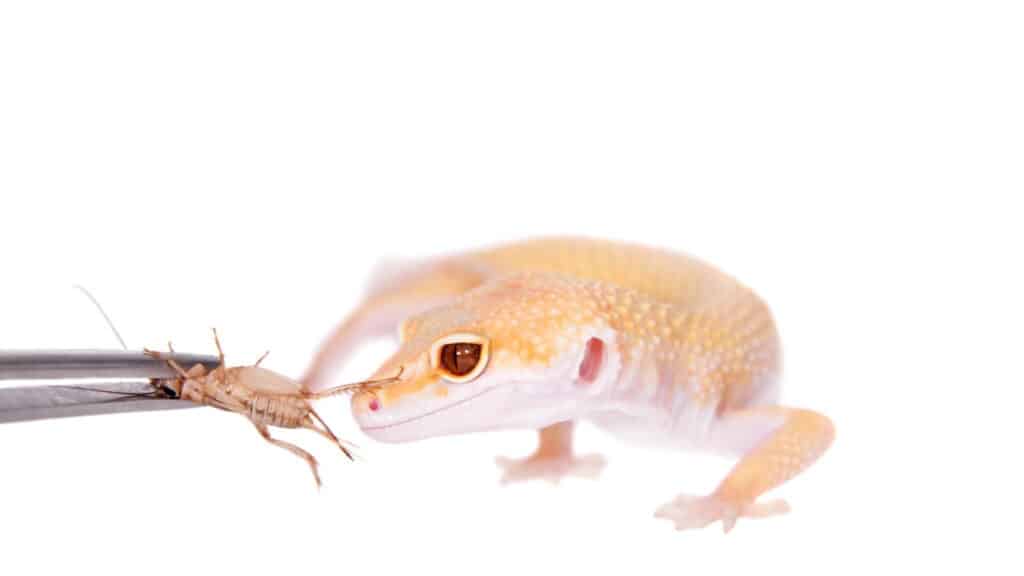Hey, fellow gecko lovers! Today I’m going to answer a common question that many leopard gecko owners have: Why has my leopard gecko stopped eating? This can be a very worrying situation, especially if you don’t know what’s causing it or how to fix it. But don’t panic, because I’m here to help you out with some possible reasons and solutions for this problem.
First of all, let me reassure you that leopard geckos are very hardy and resilient animals, and they can survive for a long time without food. In fact, some of them may go on hunger strikes for weeks or even months, depending on the season, their age, their health, and their mood. However, this doesn’t mean that you should ignore their appetite loss, because it could be a sign of something more serious.
So, let’s look at some of the most common reasons why your leopard gecko may stop eating and what you can do about it.
Reason #1: Cold Environment
The number one reason why leopard geckos stop eating is that they are too cold. Leopard geckos are ectotherms, which means they rely on external heat sources to regulate their body temperature and metabolism. If the temperature in their enclosure drops below 70°F (21°C), they will become sluggish and lose interest in food. This can happen if your heat bulb burns out, your heat mat stops working, there is a draft in the room, or you don’t have a proper heat source for your gecko.
Solution: Provide Adequate Heat
To get your leopard gecko eating again, you need to make sure that their enclosure has a warm side and a cool side. The warm side should have a basking spot of 94-97°F (34-36°C), which you can provide with a halogen bulb, a ceramic heat emitter, or a heat mat. The cool side should have an ambient temperature of 75-80°F (24-27°C), which you can maintain with room heating or a low-wattage bulb. You also need to measure the temperature with a digital thermometer or a temperature gun, and adjust it as needed. A proper temperature gradient will allow your gecko to thermoregulate and stimulate their appetite.
Reason #2: Impacted Feces
Another reason why your leopard gecko may stop eating is that they have impacted feces in their colon. This can happen if they eat too many hard-shelled insects, such as superworms or waxworms, or if they accidentally ingest some substrate material, such as sand or gravel. Impacted feces can block the passage of food and cause pain and discomfort for your gecko.
Solution: Soak and Massage
If you suspect that your leopard gecko has impacted feces, you can try to help them pass it by soaking them in warm water twice a day. The water should be deep enough to cover their hips, but not their head. While they are soaking, gently massage their belly from front to back with your fingers. This may help loosen the fecal matter and stimulate bowel movement. If this doesn’t work after a few days, or if your gecko shows signs of distress, such as swelling, lethargy, or weight loss, you should take them to a vet for further treatment.
Reason #3: Illness
A third reason why your leopard gecko may stop eating is that they are sick. There are many diseases and infections that can affect leopard geckos, such as metabolic bone disease, kidney failure, liver failure, respiratory infection, parasites, and more. These conditions can cause symptoms such as loss of appetite, weakness, dehydration, weight loss, abnormal behavior, and more.
Solution: Visit a Vet
If you notice any signs of illness in your leopard gecko, you should take them to a vet as soon as possible. A vet can diagnose the problem and prescribe the appropriate medication or treatment for your gecko. Some illnesses may require injections, oral medications, fluids, or surgery. The sooner you get your gecko treated, the better their chances of recovery.
I hope this article has helped you understand why your leopard gecko may stop eating and what you can do about it. Remember that leopard geckos are tough creatures that can bounce back from many situations. However, they also need your care and attention to stay healthy and happy. So keep an eye on your gecko’s appetite and behavior, and don’t hesitate to seek professional help if needed.
Thanks for reading and happy gecko keeping!




